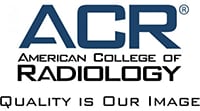Breast Health
Trust UNC Health Caldwell for expert breast health services close to home. Partner with compassionate professionals to reduce your risk of breast cancer, or detect the disease early—when it’s easier to treat.
Recognized Mammography Services

Feel confident you’re receiving safe, high-quality mammography services because UNC Health Caldwell includes facilities that are:
• Certified by the Mammography Quality Standards Act (MQSA)
• Accredited by the American College of Radiology (ACR) in Mammography
Breast Exams
Care for your health by doing regular breast self-exams. Checking your breasts every month may help you detect changes that you can share with your doctor.
When to See a Doctor for Breast Problems
Contact your gynecologist or primary care provider if you experience:
- Breast pain, redness or swelling
- Changes in the size or shape of your breast
- Lump or mass in your breast or underarm
- Nipple discharge
- Skin changes, like puckering, dimpling or indented nipples
- Sores or rashes on your nipple
Work with your doctor to treat benign (noncancerous) breast problems.
Breast Care for Men
Preteen, teen and adult males can develop enlarged breasts or breast swelling known as gynecomastia. Talk to your primary care provider about your symptoms. You can count on UNC health Caldwell for excellent diagnostic testing to check your breast health.
Breast Imaging Services at Laurel Park Women's Imaging
Access a wide range of breast imaging services at UNC Health Caldwell. Your doctor may use breast imaging to detect or diagnose breast disease. Depending on your symptoms and breast density, your doctor may recommend:
- Mammogram
- Breast ultrasound
- Breast MRI – offered onsite at Caldwell Memorial Hospital Diagnostic Imaging – 1st Floor
- Breast biopsies, including:
- Image-guided breast biopsy with mammography and ultrasound
- Sentinel lymph node biopsy
- Stereotactic breast biopsy
Breast Cancer Risk Factors
You may face a higher risk of developing breast cancer if you:
- Are older than 50
- Are overweight or obese
- Aren’t physically active
- Carry a gene mutation linked to breast cancer
- Drink alcohol
- Have a personal or family history of breast cancer
- Have dense breasts
- Take certain oral contraceptives or hormone replacement therapy (HRT)
Prevention & Early Detection of Breast Cancer
Talk to your doctor about your risk for breast cancer. Together, you can create a care plan to:
- Lower your risk of developing breast cancer
- Improve the odds that you’ll catch breast cancer early—when it’s easier to treat
Breast Cancer Care
If you receive a breast cancer diagnosis, look to McCreary Cancer Center (a service of UNC Cancer Care) for comprehensive care and support throughout your cancer journey. Count on expert cancer care and specialized treatments close to home in Lenoir. Work with a board-certified oncology nurse who’ll answer your questions about your diagnosis, treatment options, and medications.